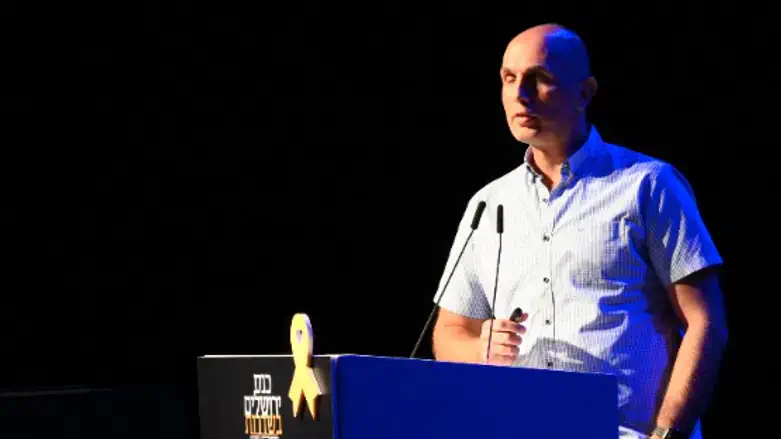
Yariv Pe’er, CEO of Rimon Internet, spoke at the Jerusalem Conference of Besheva and Arutz Sheva – Israel National News, held in Sderot on the subject of youth's exposure to social media content during the war and the heavy psychological consequences that they are experiencing.
Pe’er mentioned the effect of prolonged exposure to traumatic content on social media, and explained how the war has become an integral part of our daily lives, even if we did not experience the events directly.
He emphasized the fact that close to 30% of the subjects tested displayed symptoms of post-traumatic stress disorder, a direct result of the immense amounts of difficult content that is displayed on our phones. He described the fear that Hamas sowed in the Israeli society, not only through physical attacks, but also through the distribution of content designed to instill fear among our family members.
We are a post-traumatic country," he said, and explained how traumatic content distributed on social media causes adolescents – and adults – to develop secondary post-trauma symptoms.
Pe’er also shared his personal experience, when his son, a sergeant in Nahal Oz, was in the IDF base on October 7th. Although he and his family were not directly present at the events, they were exposed to symptoms of trauma, due to the anxiety and uncertainty they experienced.
In order to deal with exposure to traumatic digital content, Pe’er recommended taking four key steps:
1. Limiting exposure to social media – filtering content and blocking access to networks, such as Telegram.
2. Installing filters – digital solutions for time management and preventing exposure to inappropriate content. 3. Not sharing offensive content - if you've been exposed to harsh content, don't pass it on.
4. Controlled consumption of content - preferring limited consumption of news content and concentrating on positive content.
Pe’er emphasized the importance of routine as a central anchor in times of crisis, while maintaining family gatherings and daily activities, that can help deal with the symptoms of post-trauma. "Routine is the number one medicine," he concluded, urging the public to contact professionals if they recognize symptoms of post-trauma.
